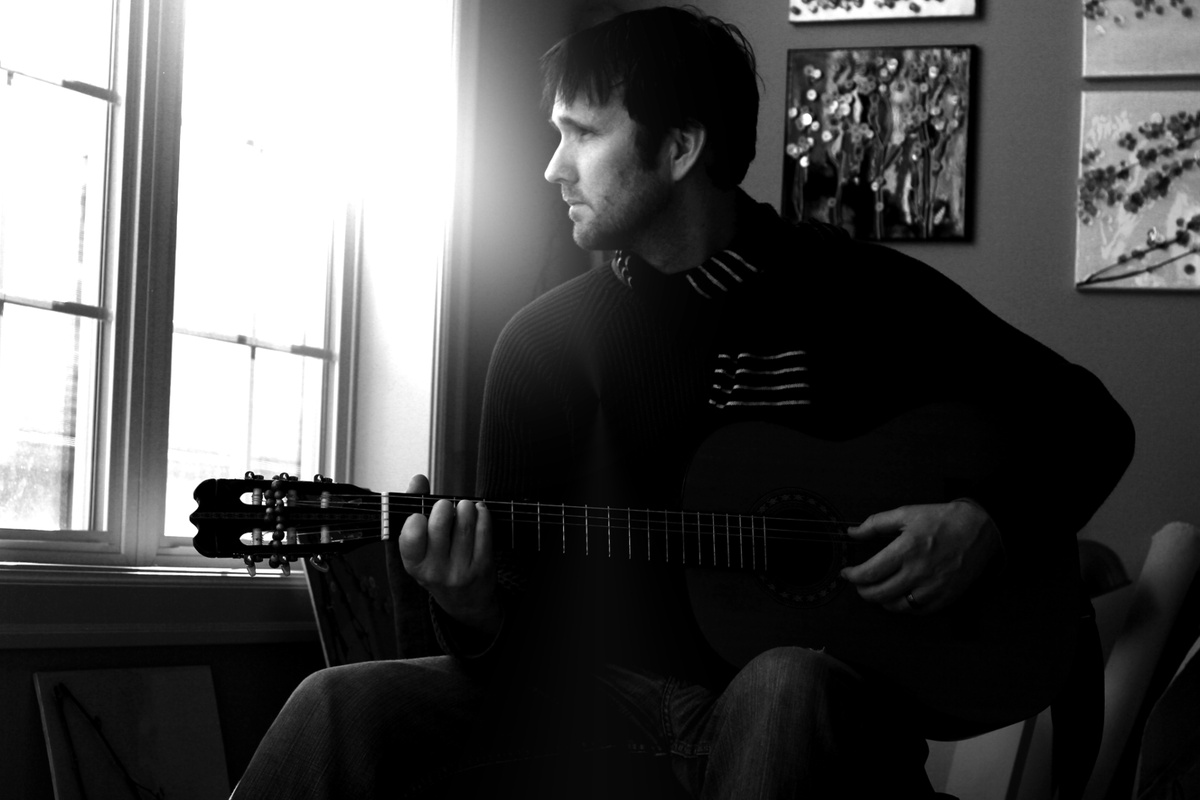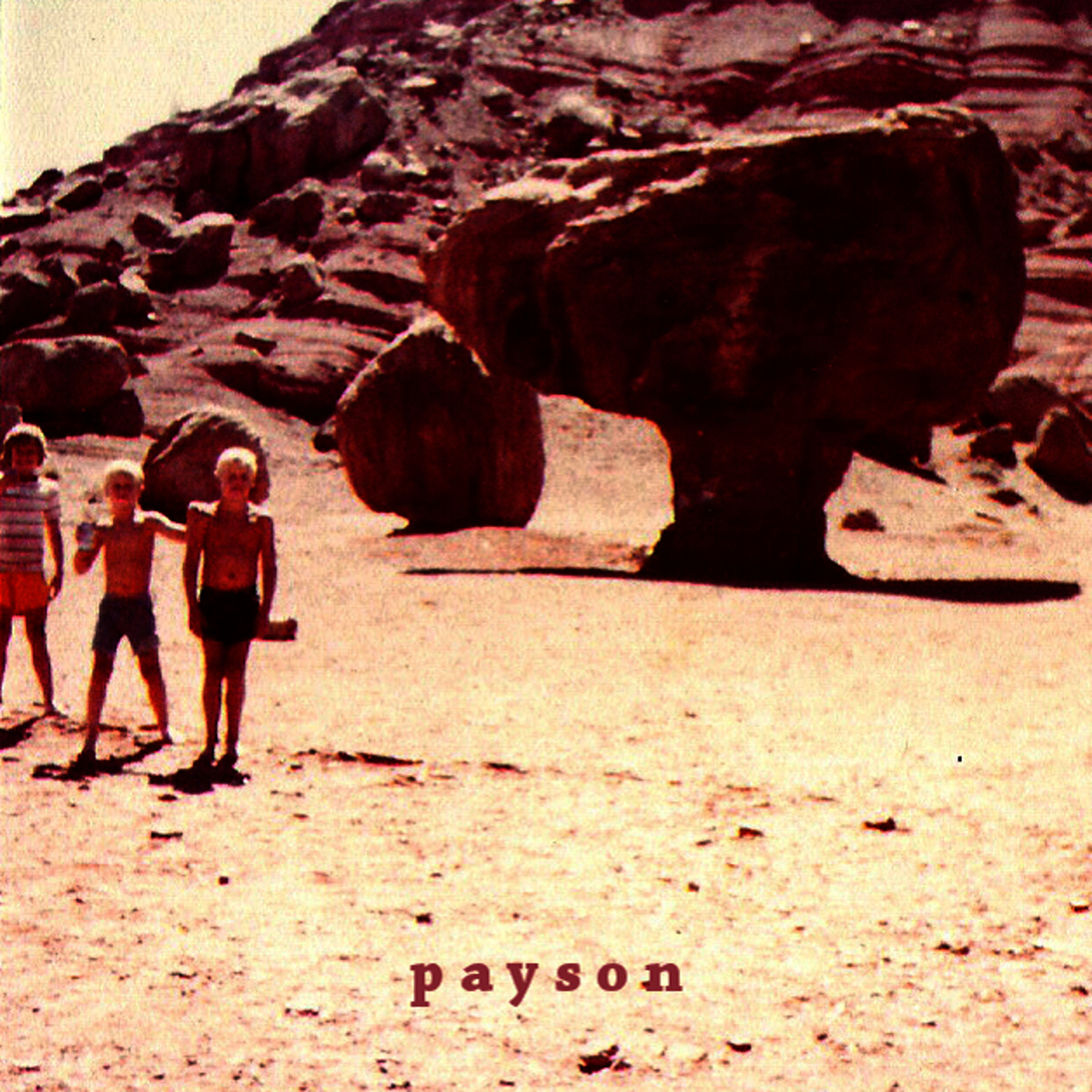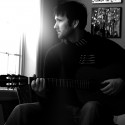I discovered him quite serendipitously one recent Sunday. Killing time in the Ballard neighborhood of Seattle, I wandered into a bar known as Conor Byrne that gives local musicians the opportunity to play a three-song set during their weekly open mic. Midway through the evening, a tall, shaggy-browed musician was introduced and Payson walked up and took a seat at the edge of the stage. The audience was restless and talkative, but as he began to croon his images of sweet melancholy, a hush came over the room, the spectators spellbound into silence. He had won them over completely.

A few days later, Payson and I sit outside the Black Dog Café in Snoqualmie, Washington, a small town in the shadow of Mount Si. “That exact scenario is what pushed me to get better at what I’m doing,” he says about the boisterous crowd in Ballard. “That’s what I strive for. To try and get people’s attention just by the song I’ve created. When it works it’s fantastic.”
An Arizona native, Payson and his family moved to Snoqualmie four years ago and the change of scenery did wonders for his songwriting, catalyzing a “creative heyday” as he describes it. Newly transplanted, he found himself returning to his musical roots – classical country and 60s folk/rock – and since then he has created literally hundreds of songs. As an author, what impresses me most about Payson’s prodigious output is that he writes nothing down, not even the lyrics. His songs are composed spontaneously, and then sung and sung again until they are fine-tuned and memorized. Oftentimes his creativity is so overwhelming that he finds himself developing an entirely new song before he’s even finished playing the last.
More than any other artist, Payson’s music resembles Paul Simon, and in all the best ways. There is some similarity in the voice, and especially in his worldly and spirited guitar play, but more than anything, he shares Simon’s lyrical gifts and his penchant for well-worded wisdom. For a time Payson studied flamenco music, and his musicianship is near virtuosic, but to him the notes are secondary to the message. He paraphrases a line from the famous poet Robert Browning, “If you want your songs to endure, build on the human heart.”
“I’ve always remembered that,” he says earnestly. “That’s what it’s all about. The songs that people remember are the ones that they can identify with, especially when it comes to women. Women for the most part don’t identify with somebody playing a bunch of notes on a guitar. Yeah, they might enjoy it, but they want to hear songs that touch them, and so does everybody else.”

Payson’s self-titled debut album begins with the jaunty banjo-driven song Ain’t No Sad Song and is followed by the complex and catchy I’m Asking You. His third song, Don’t You Move On, is a good old swing-dancing duet accompanied by his daughter Ireland. “Nothing wrong with keeping it in the family,” he says.
What makes these rich, rootsy songs so particularly impressive is that Payson played every one of the instruments except the fiddle and the violin. Formerly an owner of a recording studio, Payson says he was “way too meticulous” to hand the reigns over to anybody else, and the results demonstrate his skill not only as a musician and a songwriter, but also as a producer.
Perhaps my favorite song on the album is Wild Ways, a poignant examination of a young heartbreaker whose only joy “was to let them down.” Like a great short story by Anton Chekhov, Payson gets at the core of this seemingly callous girl’s humanity in a matter of minutes, and the window he illuminates is a universal one. “Oh, cause hidden deep away are all your secret things,” he sings, “In a place no one’s ever found.”
The tracks Runnin For The Sun and Caravan return to a rollicking folksy groove and the listener is forewarned that these songs have the power to occupy your mind for hours at a time. When I asked Payson why he chose to conclude the album after seven songs, he retorted, “Because brevity is the essence of wit.” He waits a beat and then provides a more pragmatic answer. “When you’re doing it all yourself, you’re limited on how much you can actually do in a certain space of time.”
Originally, Payson had intended the album to be just six songs, but he was suddenly gripped with an overpowering muse. He wrote the final track Ruins in half an hour, and managed to record the song and film the music video that same day. “The good ones, they just come out of nowhere,” he says with the innocence of the inspired. “I don’t know where the ideas or the melodies come from. All of a sudden it starts coming. When it does, you have to go with it and go with it and go with it until it’s done, and then you go, okay, now I can be at peace.”
Visit http://paysonmusic.com/ to purchase your copy of Payson’s debut album.
